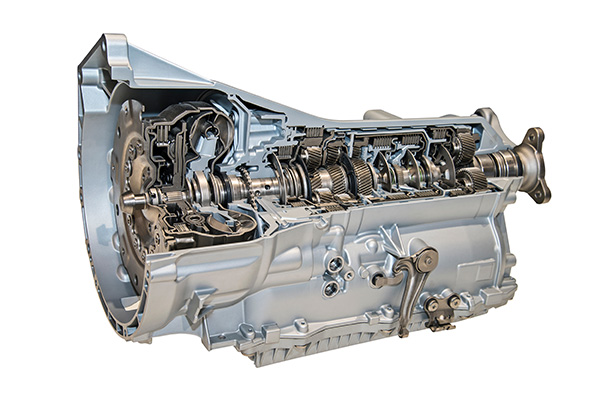Posted on 3/28/2025

Mercedes-Benz vehicles are built for precision and performance, but their transmissions require regular care to maintain that signature driving experience. Whether you have an automatic or manual transmission, keeping up with service intervals is key to smooth shifting and long-term reliability. The right maintenance schedule depends on your model, driving conditions, and how hard you push your vehicle. So, how often should you actually service your Mercedes-Benz transmission? Mercedes-Benz Transmission Service Intervals Mercedes-Benz vehicles typically feature advanced automatic transmissions, including 7-speed (7G-Tronic) and 9-speed (9G-Tronic) transmissions. These sophisticated systems are designed for smooth, efficient shifting, but they still require periodic maintenance to prevent wear and fluid breakdown. For most automatic Mercedes-Benz models, transmission service is recommended every 40,000 to 60,000 miles. However, this interval may vary depending on you ... read more
Posted on 3/17/2025

Mercedes-Benz USA Reports 2024 Growth for Passenger Car Sales Mercedes-Benz USA (MBUSA) recently reported that overall Mercedes sales grew 9% year-over-year in 2024. According to MBUSA , December 2024 was the best-ever retail month for Mercedes-Benz USA. Mercedes reported record-braking AMG sales, and all-time high sales of the G-Class vehicles, while President and CEO of Mercedes-Benz USA, Dimitris Psillakis, underscored Mercedes' commitment to innovation. Most notable, sales in the Plug-in Hybrid segment are up 470% in Q4 2024, as compared to Q4 2023. This highlights continued desirability of plugin-in hybrids. Mercedes van sales - Sprinter and Metris - dropped year-over-year, partially due to the decision to discontinue sales of gasoline powered Sprinters and Mercedes Metris vans. New all electric Sprinter vans recently entered the US market, but so far their sales volume is rather limited. At MB Clinic we welcome all Mercedes owners, and offer comprehensive Mercedes care. Ou ... read more
Posted on 2/28/2025

Leather seats add a touch of luxury to any car, offering comfort, durability, and a sleek appearance. But over time, they can show signs of wear and tear—cracks, fading, dryness, and even peeling. While leather is known for being a high-quality material, it still requires proper care to maintain its appearance and longevity. If your car’s leather seats are starting to look worn or you're wondering how to keep them in top condition, understanding the causes of deterioration and the best ways to prevent damage can make all the difference. Leather Seat Damage Several factors contribute to leather seat deterioration, and many of them are preventable with proper care. Here are the most common reasons leather seats wear out faster than expected: Sun Exposure and Heat Leather and direct sunlight don’t mix well. Over time, exposure to UV rays and high temperatures causes leather to fade, dry out, and crack. The heat can also weaken th ... read more
Posted on 1/31/2025

Your car’s speedometer might seem like just another gauge on the dashboard, but it’s more important than most people realize. When it’s not working properly, you’re left guessing how fast you’re traveling, and that’s a risk no driver should take lightly. While it might seem like a minor inconvenience at first, ignoring speedometer issues can lead to more serious consequences, both for your safety and your wallet. Let’s find out why a malfunctioning speedometer is something you shouldn’t overlook. What Causes Speedometer Problems Speedometer issues often stem from problems with the vehicle’s speed sensor, wiring, or even the gauge itself. The speed sensor, typically located on the transmission, sends signals to the car’s computer, which then displays the speed on the dashboard. If the sensor fails, becomes damaged, or gets covered in debris, it can disrupt this process. Wiring problems are another common cul ... read more